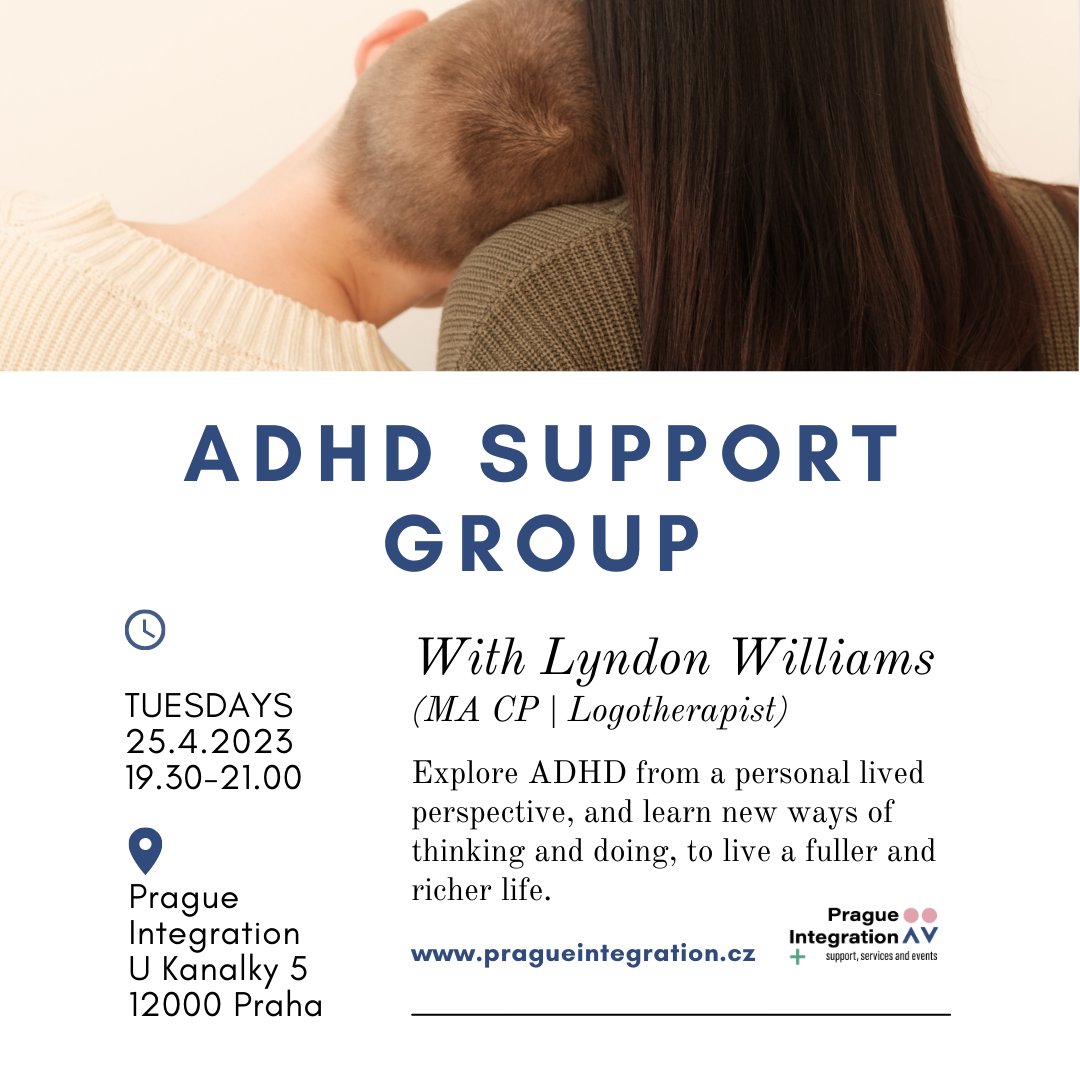The Role Of Group Support In ADHD Treatment And Self-Management

Table of Contents
Understanding the Benefits of Group Support for ADHD
Feeling understood and supported is crucial for anyone managing a condition like ADHD. The benefits of group support extend far beyond simple socialization; it offers a unique blend of practical strategies and emotional validation that significantly impacts self-management.
Shared Experiences and Reduced Isolation
Feeling alone in your struggles is a common experience for individuals with ADHD. Group settings offer a safe space to share these struggles and celebrate triumphs, fostering a sense of belonging and significantly reducing feelings of isolation.
- Connecting with others facing similar challenges validates experiences and normalizes common symptoms. Hearing others describe similar struggles with focus, organization, or emotional regulation can be incredibly reassuring. It helps to diminish the feeling that you're somehow "broken" or deficient.
- Reduced feelings of shame and stigma lead to improved self-esteem. Openly sharing your experiences in a supportive environment can dismantle the shame and stigma often associated with ADHD. This open communication fosters self-acceptance and boosts self-esteem.
- Sharing coping strategies and practical tips creates a supportive network. Group members can learn from each other's successes and challenges, creating a rich resource of practical advice and emotional support. This peer-to-peer learning can be incredibly effective.
Enhanced Self-Awareness and Insight
Participating in an ADHD support group provides opportunities for reflection and self-discovery that are hard to find elsewhere. Observing others and hearing their perspectives can offer invaluable insights into your personal patterns and behaviors.
- Identifying triggers and developing personalized strategies for managing symptoms. By listening to others' experiences, you may identify common triggers for your ADHD symptoms and brainstorm personalized strategies to manage them effectively.
- Increased awareness of strengths and weaknesses in coping mechanisms. Seeing how others cope with ADHD challenges can help you identify your own strengths and weaknesses, leading to more effective self-management.
- Learning from the successes and challenges of others. Witnessing the successes and failures of others offers a valuable learning opportunity and can prevent you from repeating their mistakes, accelerating your own progress.
Skill Development and Practical Strategies
Many ADHD support groups incorporate education and skill-building activities focused on self-management techniques. These activities provide practical tools and strategies to improve daily functioning.
- Learning effective time management techniques. Group settings often provide structured learning on time management, prioritization, and task breakdown – all crucial skills for individuals with ADHD.
- Developing organizational skills for improved productivity. Learning organizational systems and strategies tailored to ADHD can dramatically impact productivity and reduce feelings of overwhelm.
- Practicing strategies for impulse control and emotional regulation. Support groups offer a safe space to practice techniques for managing impulsivity and regulating emotions, crucial skills for individuals with ADHD.
Types of Group Support for ADHD
Several types of group support cater to the diverse needs of individuals with ADHD. Understanding the differences can help you find the best fit.
Support Groups
Peer-led support groups provide a platform for sharing experiences, offering mutual support, and building connections with others who understand.
- Finding local or online ADHD support groups through organizations or online platforms. Many organizations dedicated to ADHD offer support groups, both in-person and online, making it easy to find a group near you.
- The benefits of structured vs. unstructured support groups. Consider whether a structured group with a specific agenda or an unstructured group with more free-flowing conversation suits you best.
- Considering the group's size, focus, and leadership style. Choose a group size, focus (e.g., adults with ADHD, children with ADHD, specific challenges), and leadership style that aligns with your personal preferences.
Therapy Groups
Facilitated by a mental health professional, therapy groups combine therapeutic interventions with peer support. This approach offers a more structured and guided approach to self-management.
- Utilizing the expertise of a therapist to guide discussions and address specific issues. A therapist can help navigate difficult conversations, offer professional guidance, and provide targeted interventions.
- Learning coping mechanisms and interpersonal skills in a supportive environment. Therapy groups often focus on teaching coping mechanisms and improving interpersonal skills in a safe and supportive setting.
- Exploring underlying emotional challenges associated with ADHD. Therapy groups can help address the underlying emotional challenges that often accompany ADHD, such as anxiety, depression, or low self-esteem.
Educational Workshops and Seminars
These offer structured learning experiences focused on specific ADHD-related topics. These are less focused on emotional support and more on skill-building.
- Acquiring practical knowledge and skills for self-management. Workshops provide targeted training on specific ADHD challenges, such as time management, organization, or executive functioning.
- Learning about new treatments and strategies. Seminars often cover the latest research and treatment options for ADHD.
- Networking with other individuals and professionals. These events offer networking opportunities with other individuals with ADHD and professionals in the field.
Finding the Right Group Support for Your Needs
Choosing the right group support is a crucial step. Consider your personal preferences and goals to find the best fit.
Consider Your Goals
What are you hoping to achieve through group support? Improved organization? Better emotional regulation? Stronger social connections? Clarifying your goals will help you choose a group that aligns with your needs.
Evaluate Group Dynamics
Is the group environment supportive and welcoming? Does it feel safe and judgment-free? Visiting a group meeting or speaking with current members can help assess the group's dynamics.
Check Credentials
If working with a therapist-led group, verify their qualifications and experience in treating ADHD. Look for therapists with expertise in ADHD and proven success in group therapy.
Conclusion
Incorporating group support for ADHD into your treatment plan can significantly enhance your self-management skills and improve your overall quality of life. The shared experience, skill-building opportunities, and sense of community offered by these groups are invaluable assets in navigating the challenges of ADHD. Don't hesitate to explore different options to find the best fit for your needs. Take the first step towards a more fulfilling life by actively seeking out ADHD support groups and resources today. Start your journey towards better self-management with the power of group support for ADHD.

Featured Posts
-
 Harnessing Natures Power Natural Ways To Improve Adhd
Apr 29, 2025
Harnessing Natures Power Natural Ways To Improve Adhd
Apr 29, 2025 -
 Hagia Sophia Enduring Megastructure Through The Ages
Apr 29, 2025
Hagia Sophia Enduring Megastructure Through The Ages
Apr 29, 2025 -
 La Parita Sul Posto Di Lavoro Una Realta Ancora Lontana
Apr 29, 2025
La Parita Sul Posto Di Lavoro Una Realta Ancora Lontana
Apr 29, 2025 -
 Toxic Chemical Fallout Ohio Derailments Impact On Building Contamination
Apr 29, 2025
Toxic Chemical Fallout Ohio Derailments Impact On Building Contamination
Apr 29, 2025 -
 Fhi Adhd Medisinens Begrensede Effekt Pa Skoleprestasjoner
Apr 29, 2025
Fhi Adhd Medisinens Begrensede Effekt Pa Skoleprestasjoner
Apr 29, 2025
